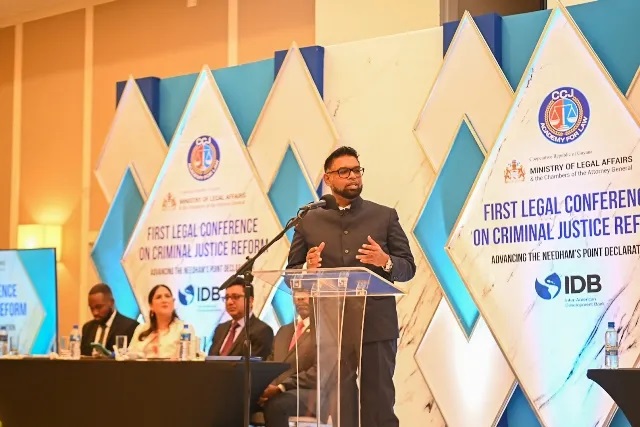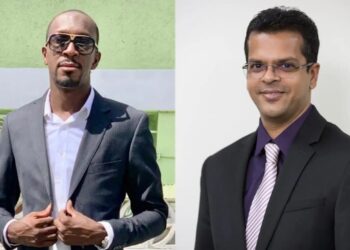Legal professionals were urged on Wednesday to collaborate with various institutions to build resilient legal systems that address the root causes of crime and foster a modern and efficient justice landscape. The call was made by President Dr. Mohamed Irfaan Ali during the First Legal Conference on Criminal Justice Reform at the Marriott Hotel in Kingston, Georgetown.
President Ali emphasized that the criminal justice system is interconnected with various societal elements such as the environment, culture, and the economy. He noted that the focus often shifts to crime statistics, which he views as indicators rather than the origins of crime.

“Sometimes we get carried away with the indicators of crime and criminality, and we do not focus on the origination of crime and criminality. In speaking about crime and criminality, to reinforce the point, we immediately move to the stats, which, in my opinion, are the indicators of the problem,” President Ali stated.
He identified three pillars essential for maintaining order: political stability, the rule of law, and democracy. According to the President, a strong legal system upholding these principles weakens criminal activity.
“The criminal network and enterprise feed off certain things. If there is political instability, if the rule of law does not exist, if society operates in an undemocratic environment, criminality feeds off of that,” he explained.
President Ali also highlighted the importance of judicial predictability, which he defined as consistent and fair decision-making across the judicial system.
“If you examine similar issues by different magistrates across the region, and see the variation in decisions, then it exposes the system to all sorts of assertions, and we have to guard the system. The only way we can do this is if the elements of judicial predictability based on fairness and justice are kept intact,” he said.
To underscore the urgency of criminal justice reform, President Ali referenced a 2023 study showing that the violent crime rate in CARICOM nations is nearly triple the global average. He asserted that tackling this issue requires a collective effort beyond just executive action.
“If we don’t build strong, relevant institutions, then we will not build for the future. How do we build institutions that can withstand transitions in governments? The people vote, you have changes, but there is a transition, and that is an important aspect of political stability,” he noted.
Other notable speakers at the opening ceremony included Attorney General and Minister of Legal Affairs Mohabir Anil Nandlall, SC; Judge of the Caribbean Court of Justice (CCJ) and Chairman of the CCJ Academy for Law, Justice Winston Anderson; and Chancellor of the Judiciary, Justice Yonette Cummings-Edwards, OR, CCH.













